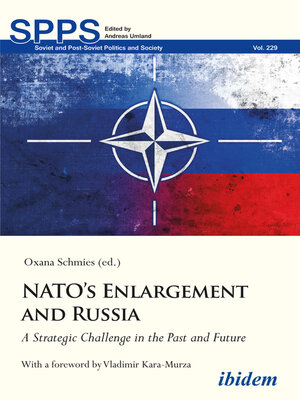NATO's Enlargement and Russia
ebook ∣ A Strategic Challenge in the Past and Future · Soviet and Post-Soviet Politics and Society
By Oxana Schmies

Sign up to save your library
With an OverDrive account, you can save your favorite libraries for at-a-glance information about availability. Find out more about OverDrive accounts.
Find this title in Libby, the library reading app by OverDrive.



Search for a digital library with this title
Title found at these libraries:
| Library Name | Distance |
|---|---|
| Loading... |
The Kremlin has sought to establish an exclusive Russian sphere of influence in the nations lying between Russia and the EU, from Georgia in 2008 to Ukraine in 2014 and Belarus in 2020. It has extended its control by means of military intervention, territorial annexation, economic pressure and covert activities. Moscow seeks to justify this behavior by referring to an alleged threat from NATO and the Alliance's eastward enlargement. In the rhetoric of the Kremlin, NATO expansion is the main source for Moscow's stand-off with the West. This collection of essays and analyses by prominent politicians, diplomats, and scholars from the US, Russia, and Europe provides personal perspectives on the sources of the Russian-Western estrangement. They draw on historical experience, including the Russian-Western controversies that intensified with NATO's eastward expansion in the 1990s, and reflect on possible perspectives of reconcilitation within the renewed transatlantic relationship. The volume touches upon alleged and real security guarantees for the countries of Eastern and Central Europe as well as past and current deficits in the Western strategy for dealing with an increasingly hostile Russia. Thus, it contributes to the ongoing Western debate on which policies towards Russia can help to overcome the deep current divisions and to best meet Europe's future challenges.







